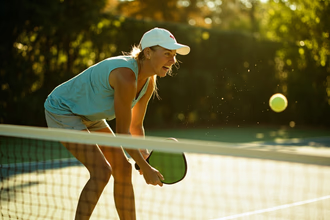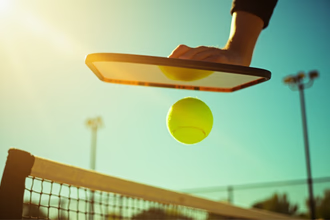
Master the dink and control the pace! Dominate the court with our expert tips and techniques. Start winning today!


Here's a guide to the dinking drill for pickleball players of all levels. This drill focuses on dinking back and forth to improve your touch. It's important for all players because it improves control and finesse at the net.
Dinking is a soft shot, usually played near the net, that lands in the non-volley zone (NVZ), also known as the "kitchen." Being good at the dink is vital for success in pickleball because it:
This drill is rated 2 in difficulty and takes about 35 minutes. You'll need a pickleball paddle, balls, and a net.
To ensure safe and effective training:
Here are a few alternative ways to practice your dinking:
Instead of dinking straight across the net, aim for the opposite cross-court corner of the NVZ. This helps improve your angles and control.
After dinking the ball, take a step back toward the transition zone. This simulates a real game situation where you need to be ready to move after your dink.

Master the dink and control the pace! Dominate the court with our expert tips and techniques. Start winning today!

Learn the strategy tactics drill for advanced pickleball players! Improve your game with this 50-minute drill.

Learn the basic skills drill for novice pickleball players and improve your game with this 25-minute drill.